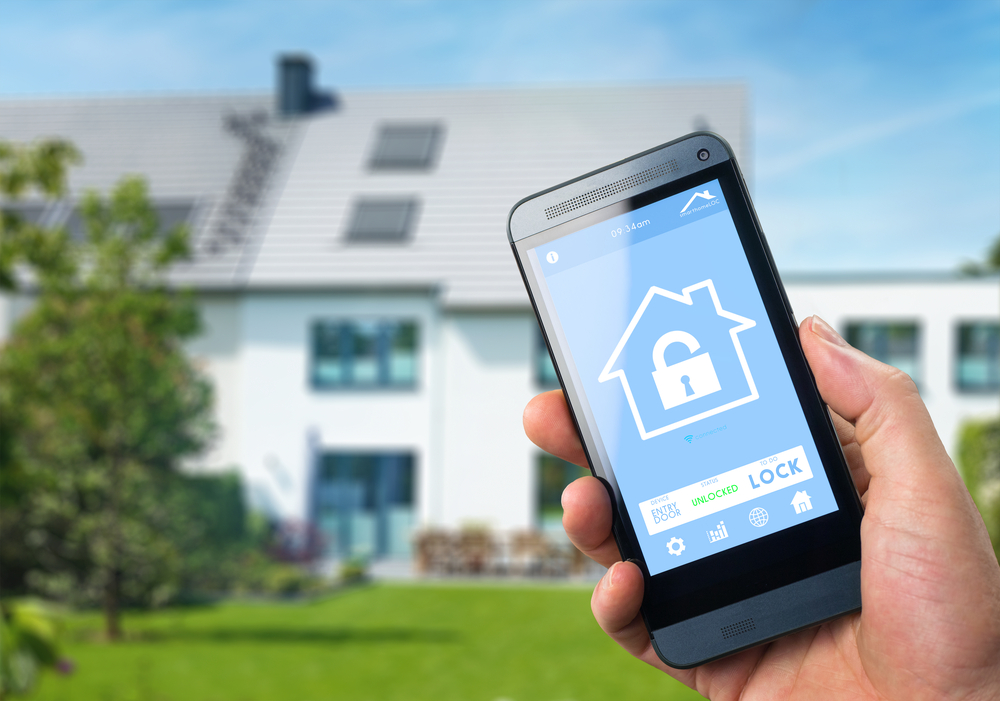We’re living in a world that’s full of constant innovation, from sustainable forms of power, to useful household appliances that can improve our quality of life, save us money, and benefit the planet. It’s no surprise that the concept of a solar-powered smart home is a compelling one, delivering the idea of an energy-efficient haven where appliances can be monitored, and power can be derived from sustainable resources, then stored for later use. Indeed, we could be working towards a future in which we have complete control over our energy usage, and solar power will be a huge factor in that.

The Benefit of Introducing Solar Power into Smart Homes
Swapping old fashioned home appliances with newer “smart” technologies and systems can be an ideal way to open your home to innovations of the future, allowing you to save money on utilities, and access new forms of security and convenience. When most people think of smart homes today, they consider products controlled through the internet — such as thermostats and entertainment products. However, many don’t realize that smart technology also applies to solar energy. With both solar power and smart technology, you could maximize the benefit of renewable energy in your home.
As most people already know, homes located in geographical areas with more sunlight often benefit most from solar energy solutions. If your home generally uses a lot of electricity, smart home technology can help you to begin saving money very quickly. The combination of home automation systems used alongside solar power delivers a smart alternative to obtaining electricity from a power company. Indeed, as energy bills continue to rise every year, a solar power and smart home combination could be the smartest investment any homeowner makes.
Including Solar Power in Smart Homes
One of the reasons why smart home technology and solar power fit so well together, is that they both focus on the idea of making your home run as efficiently as possible. While your smart home automation may save you energy and money by allowing you to program your ideal temperature through a clever thermostat, to turning off your lights away from home, your solar energy will help to maximize the financial and environmental benefits of your property.
Solar systems can combine with smart home features, such as light occupancy sensors, energy usage systems, and programmable thermostats. Indeed, with an integrated smart home and solar power system, the possibilities are endless. While your solar system creates affordable power for your property, your smart technology allows you to control and adjust that power to keep everything running effortlessly.
The Current Potential of Solar Smart Homes
Vehicles and homes account for approximately 44% of the total greenhouse gasses emitted in the US, and neutralizing those emissions through renewable energy sources could go a long way to creating a cleaner future. However, the evidence of solar power’s positive impact is already changing the world as we know it today. For instance, the Honda Smart Home that was recently unveiled generates enough energy to power the home and car, while still feeding energy back into the grid each month.
While the first benefit most people think about in regards to solar energy is the impact that it can have on the environment, and the future of the planet that we live on, it’s worth noting that combining solar energy and smart home systems could also have an instant effect on utility bills and finances. Solar-Nation.org provides a map describing exactly how much money you can save every month by installing solar panels in your home — with cash savings that range between $44 and $187 a month. Combine those solar panels with smart home appliances, and you can monitor your system to maximize savings, and see exactly where and how much energy you’re using.
As long as you have an internet connection, smart home technology means that you can check how much power you’re using, and how much cash you could be saving.
The Future Potential of Solar Smart Homes
According to some experts, the introduction of new smart technology combined with solar power could be enough to transform the home of the future into a mini power-plant. According to Navigant Research, the homeowner of the future could generate and sell as much energy as they use every day, changing the relationship that exists between utility providers, and consumers.
Grid-tied residential energy storage and electric vehicles that use online platforms to manage crucial power functions are changing the way we manage energy. According to experts, the market for residential energy storage and generation is expected to grow to 1.5 GW in 2023, and solar smart homes will perhaps offer the best, and most convenient way of life.
